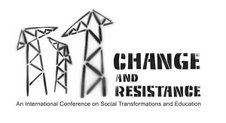prof dr hab. Manfred Bayer
Uniwersytet Gdanski & Universitat Duisburg-Essen Ed. & Social Sciences
After the World War IT there was an ongoing social change process in Germany, mainly due to the fact of a massive immigration, partly by refugees (mainly from Poland and Russia) and partly by migratory workers from Eastern and Southern parts of Europe.
This process has caused greatest trouble within the subdivided school system since neither the teachers nor the school administration was prepared for this enormous challenge.
Thus the setting up of the Deutscher Bildungsrat - an overall conference of progressive scientists and administrators from all German regions (Bundesländer) founded in the 19seventies - provided new curricula and methodologies for teacher training as well as for the different school systems.
What an enlightenment for our society!
This was the right moment for RESISTANCE: First of all, the Ministers of Education protested because of far too high costs for their limited budgets. Was there no other way as e. g. to remigrate the unnecessary foreign workers with their families? Or to invent national classes and special schools for migrant children, teaching them only in their mother tongue and repatriate them immediately after leaving school? Then new formations of conservative parents came with new regulations for protecting their own (German!) children against such a flood of undesired rivals. There were more uncounted social protest among the people, such as the famous "Ausländer raus!"
One of the very few positive reactions was the invention of an intercultural study module of 4-8 hours (but not any more) in the teacher education curriculum. This "innovative module" had to be implemented into heavily overloaded courses of studies at universities who had no qualified lecturers up to then for this purpose. This is why professors of traditional subjects entered long lists of protest against this "absurd invention" which seemed rather depriving students of their really needed, necessary qualifications. And so on, and so on ...
Because of this really disturbing resistance from various social groups against these obligatory courses for teachers and new school curricula for intercultural education this innovation had to be dropped - until something incomprehensible and horrible happened in the Netherlands:
The parallel social strata of disintegrated immigrants have been suddenly discovered in most European societies. The crucial question is now: Why did this happen?
Subscribe to:
Post Comments (Atom)

No comments:
Post a Comment